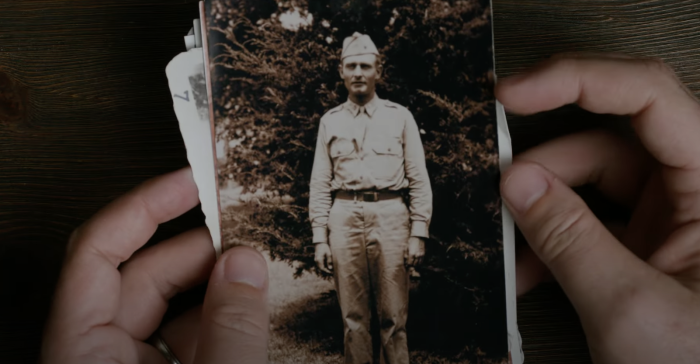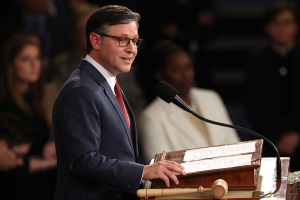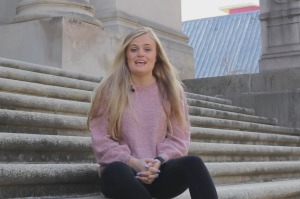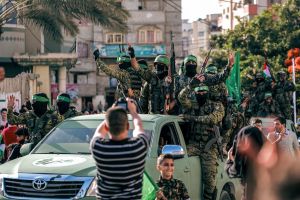Chris Pratt-backed 'Fighting Spirit' doc highlights sacrifice, resilience of military chaplains

Military chaplains, the unsung heroes who walk side by side with soldiers into the harshest realities of war, are the focal point of a new documentary that aims to encourage viewers to find their own “life jacket moments” — acts of selflessness and service that can change lives.
“Fighting Spirit: A Combat Chaplain’s Journey,” the first-ever co-production between Hollywood and the U.S. Army Chaplain Corps, is directed by Justin D. Roberts and produced by Rich Hull, along with actor Chris Pratt as an executive producer.
The story begins with a profound discovery: the remains of Emil Kapaun, a Catholic Army chaplain captured and killed during the Korean War, were identified after nearly 70 years.
Kapaun, who served as a chaplain and a source of comfort to fellow soldiers while enduring hardship as a POW, left a legacy of resilience and faith that echoes through the decades. In 2013, he was posthumously awarded the Medal of Honor, and the Vatican is evaluating his canonization.
“Fighting Spirit” doesn’t just chronicle Kapaun’s life; it delves into the collective legacy of all 419 U.S. military chaplains who have given their lives in service.
In an interview with The Christian Post, Army Chaplain Brandon Moore, who co-produced the film, reflected on how faith can be a cornerstone of resilience and mental health for soldiers on the front lines. The film, he said, aims to highlight the quiet, powerful work of chaplains offering counseling, guidance and friendship to those grappling with trauma and loss.
“Chaplains, at times, can help people find hope and realize that there may be situations in our life that we can't change, but sometimes by realizing that there's a bigger plan, there's life beyond this immediate moment because that's a powerful thing — God puts us in the right place with people,” he said.
“The idea of self-sacrifice — Jesus gave of Himself. So there's a part where we realize, if we start feeling bad about ourselves, guess what, Jesus did too: ‘Take this cup from me,’ ‘Not my will, but Your will be done.’ You see that moment there where Jesus says, ‘It's not about my feelings right now, it's ultimately about doing God's will.’”
The documentary shows how chaplains, unique among military personnel, serve without weapons, placing their lives in the hands of others as they focus solely on the spiritual and emotional well-being of those they serve.
“The chaplain's unique role is to turn, in a sense, around,” Moore explained. “Our job is to focus on soldiers, their families and those in harm's way. There are times when we would care for the enemy as well, but our number one goal is to care for the souls of the Army. Our job isn't to have a weapon facing the enemy; we have plenty of soldiers to do that. The unique role of the chaplain is to say, ‘Our hands are to heal and to care and to serve.’”
Through gripping recollections and never-before-seen footage, the film offers a raw and rare view of the men and women who serve as both moral anchors and spiritual counselors in times of stress and violence.
Moore recalled one Christmas Eve service in Iraq, where he transformed a humble makeshift coffeehouse into a place of solace. Soldiers from all backgrounds came together that night, lit candles and sang — an act of defiance against the darkness of war.
“We passed candles, and we were lighting candles, and I stood on top of this truck stage, and we talked about gathering together to bring peace on Earth in the middle of war, and that Christ came for us and to be the light of the world,” he said. “To look out from people from all different backgrounds to lighting candles, it was amazing.”
The documentary also highlights the story of the “Four Chaplains” of World War II — a Catholic priest, a rabbi and two Protestant chaplains — who perished aboard the USS Dorchester after giving up their life vests to fellow soldiers. The story, often immortalized on stamps and in patriotic lore, serves as a profound example of interfaith unity in crisis, Moore said.
“In the film, you'll see even the eyewitnesses that lived, recounting the fact that these four chaplains gathered together and they went down with the ship,” he said. “What makes that story powerful is that they had a life jacket, but they realized there was someone that didn't, and they were ready to, in a sense, meet their maker … they wanted to ensure that the soldiers that may not be ready could have a life jacket and they could continue to live. That's the power of that story.”
According to the Department of Defense, there is a significant shortage of military chaplains across the U.S., particularly for Catholic servicemembers, despite their crucial role.
Moore, now the Army’s Chief of Recruiting for Chaplains, explained that becoming a chaplain is a “secondary call” beyond traditional ministry and requires a master’s degree in divinity, ordination and specialized training. Through “Fighting Spirit,” he said he hopes to inspire a new generation to consider this path and “fill the ranks” with those willing to shoulder the weight of a pastoral calling.
“For anyone that says, ‘I want to be a combat chaplain,’ I would tell them to take the next step. What's the next step that you need to take? Because sometimes God gives us just enough for that next step,” he said.
“I would encourage anyone thinking about being a chaplain to go for it. They may not be able to do it today, but what's that next step that they need to take that honors God, and then the step after that, and the step after that, and then at the end of the day, I think they'll look back and go, ‘Wow, I never believed I could have a life like this that would make such a difference.’”
Moore, along with several others, screened the film for the Vatican last year. Reflecting on the experience, he recalled presenting a commemorative coin bearing the likeness of the Four Chaplains to Pope Francis.
“It was surreal,” he said. “In some way, I felt as though I was honoring Kapaun and all the chaplains who never got to make it home.”
Moore said he’s hopeful that “Fighting Spirit” not only educates audiences about chaplains but inspires viewers to consider their own “life jacket moments.”
“The lesson is not to give up your life jacket and die,” he said, referring to the story of the four chaplains. “It's more than that. It's what's that life jacket moment in your life when you have something that you don't have to give up, but you choose to give that up for someone else … as an act of love?”
Leah M. Klett is a reporter for The Christian Post. She can be reached at: leah.klett@christianpost.com





























